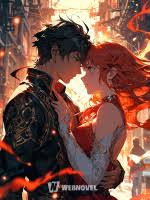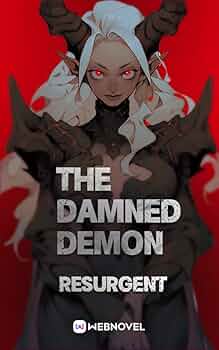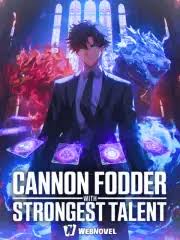The Story in 3 Sentences
A man transmigrates into his own anime creation, instantly forced into a marriage pact with its terrifyingly powerful final boss, the coldly beautiful staff-wielder destined to destroy the world.
Instead of fleeing his doom, he leans into the absurdity, using his meta-knowledge and a god-tier system to navigate deadly tournaments, political intrigue, and a growing harem, turning survival into a chaotic power climb.
His journey culminates not just in defeating ancient evils like the multi-eyed Loki, but in reshaping the very fate of the world alongside his once-antagonist bride and their formidable daughter, Leslie, securing a future far beyond his initial desperate gamble.
Why It Stands Out
1. Meta-Marriage Mayhem
The core premise is pure, chaotic gold: being forced to marry the apocalypse incarnate on day one flips every transmigration trope on its head. It’s not about slow cultivation or hidden potential; it’s about immediate, high-stakes absurdity where romance and world-ending threats are bizarrely intertwined from the jump. The protagonist’s resigned, often humorous, approach to his impossible situation creates a uniquely entertaining dynamic that fuels the entire narrative.
2. System Synergy with Soul
While the god-tier reward system provides the classic power-up mechanics fans crave, the story avoids feeling like a soulless grind. The system’s choices are deeply tied to character relationships and narrative consequences, particularly the marriage bond. Gaining power often means navigating complex emotional or political fallout, making progression feel earned and narratively significant rather than just a stat increase. It’s a system that serves the story’s heart, not the other way around.
3. Power Couple Parenting
The evolution from reluctant spouses to a genuinely formidable power couple, further amplified by the arrival of their monstrously talented daughter Leslie, is the story’s beating heart. Their dynamic isn’t just romantic; it’s a partnership forged in fire, facing down gods and demons. Watching them parent a child who inherits and surpasses their terrifying potential adds a hilarious and unexpectedly heartwarming layer to the epic battles, making their victories feel deeply personal and their bond utterly unbreakable.
Characters That Leave a Mark
There’s Madelyn Ravenwood – the “thorny rose” of her noble house, a genius swordsman whose initial rivalry with Owen masks a deeper, more complex fascination that evolves into a crucial, steadfast alliance, proving her steel is more than just on the battlefield.
You’ll meet Raze Cromwell, who endured a cruel upbringing that twisted his nature, a man whose path of survival forced him into darkness, becoming a complex figure whose interactions with Owen challenge notions of inherent villainy and offer glimpses of a soul shaped by relentless hardship.
And Loki? They’re the one who embodies the ancient, multi-eyed terror looming over the world, a being whose very presence chills the blood, forcing Owen and his allies to confront power on a cosmic scale, their final confrontation shaking the heavens and testing the limits of everything the protagonists have built.
The Flaws Fans Debate
The harem elements can feel underdeveloped, with potential love interests sometimes introduced only to be sidelined, lacking meaningful closure or purpose beyond their initial narrative function.
Leslie’s overwhelming power and constant pedestal placement can occasionally overshadow Owen’s own growth, making some victories feel less earned by the protagonist and more a result of his daughter’s inherited brilliance, even when logic might suggest otherwise.
The pacing, while generally tight, can sometimes prioritize the protagonist’s immediate power-ups or romantic entanglements over deeper exploration of the intriguing political and cultist subplots introduced in the middle arcs, leaving some threads feeling less resolved.
Must-Experience Arcs
Ch. 1–50: The Arena Gambit – Owen wakes in the arena, faces immediate death, and triggers his system, leading to the fateful marriage contract with the antagonist; this arc establishes the core premise, the system’s mechanics, and the desperate, darkly comedic tone as he survives his first impossible challenge.
Ch. 200–300: The Azure Kingdom Confrontation – Political tensions explode as Owen and his allies face off against the Kyrik King and entrenched powers within the palace, showcasing strategic maneuvering beyond brute force, deepening alliances like Madelyn’s, and revealing more about the world’s hidden threats and Owen’s growing influence.
Ch. 540–574: The Final Reckoning – The ultimate battle against Loki begins, a cataclysmic event where Owen, his wife, and Leslie unleash their full power; this arc delivers on the apocalyptic stakes, features devastating combat, and concludes the central conflict with a focus on family, sacrifice, and the hard-won peace that follows the storm.
Killer Quotes
“Today, we will end this battle together, my daughter and I—let’s kill this ugly spider!”
“Winning one hundred and nine consecutive matches… truly lives up to her name as the thorny rose.”
“And not just your daughter—you, and everyone in the Azure Kingdom, will soon become nothing more than history!”
Cultural Impact
Dubbed the “WPC June 2024 Winner” by fans, cementing its status as a standout title in its genre for that period.
The phrase “Damn, I Have to Marry…” became a meme template for fans describing any situation involving being forced into an absurdly difficult or high-stakes commitment.
Its unique blend of OP-start, villainess romance, and system mechanics sparked countless forum discussions and fan theories, particularly around Leslie’s power scaling and the nature of the final battle.
Final Verdict
Start Here If You Want:
A hilarious, high-octane romp where the stakes are world-ending but the protagonist’s internal monologue is pure, relatable panic.
The ultimate power fantasy that doesn’t take itself too seriously, blending epic cultivation battles with the absurdities of forced marriage and chaotic family life.
A story where the “villainess” isn’t just redeemed but becomes the co-protagonist and mother of the most terrifyingly adorable powerhouse in the universe.
Study If You Love:
Deconstructing transmigration tropes by placing the protagonist directly against the endgame boss from the outset, examining agency within a predetermined narrative.
The narrative function of systems in romance-driven fantasy, where power progression is intrinsically linked to relationship milestones and emotional bonds.
Exploring the dynamics of found family and legacy within a harem/xianxia framework, particularly how the introduction of a child character like Leslie reshapes the entire story’s conflict and resolution.
Avoid If You Prefer:
Stories with a strictly solo male protagonist where romantic interests are minimal or non-existent; the harem and marriage elements are central, not peripheral.
Plots where the main character’s victories are solely due to their own grit and slow cultivation; here, meta-knowledge, system rewards, and powerful allies (especially family) are key.
Narratives that avoid power-scaling debates or where child characters don’t possess universe-shattering potential; Leslie’s role is a major, sometimes divisive, pillar of the plot.





